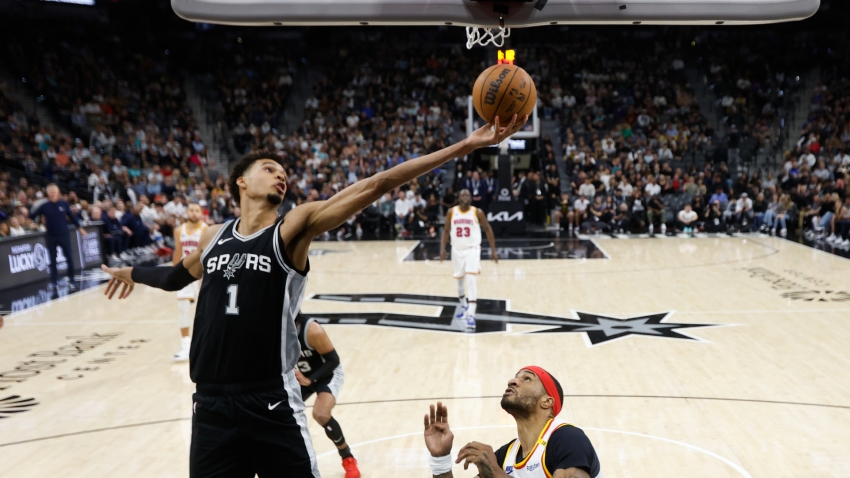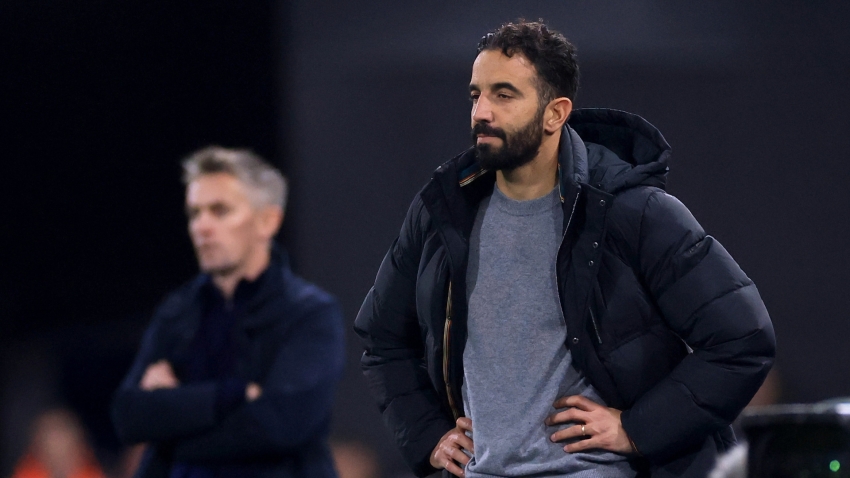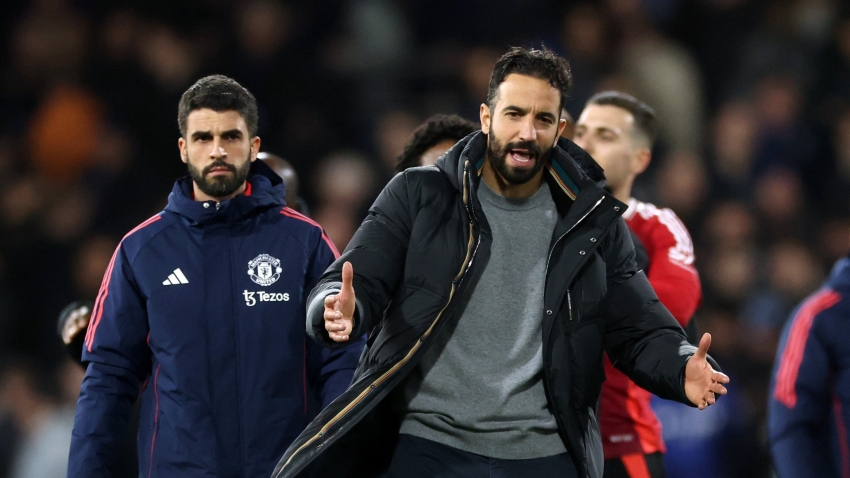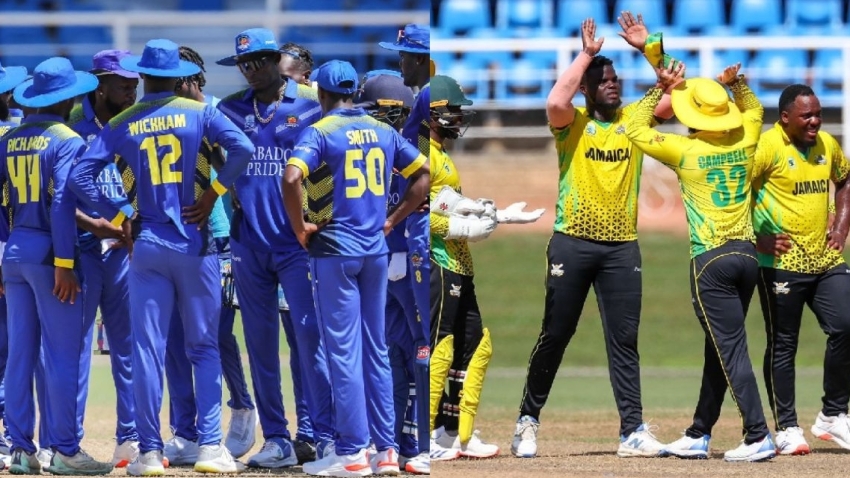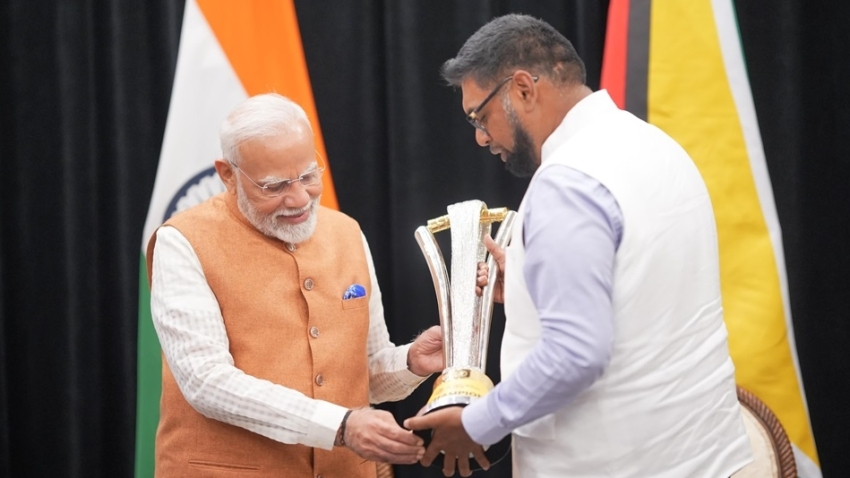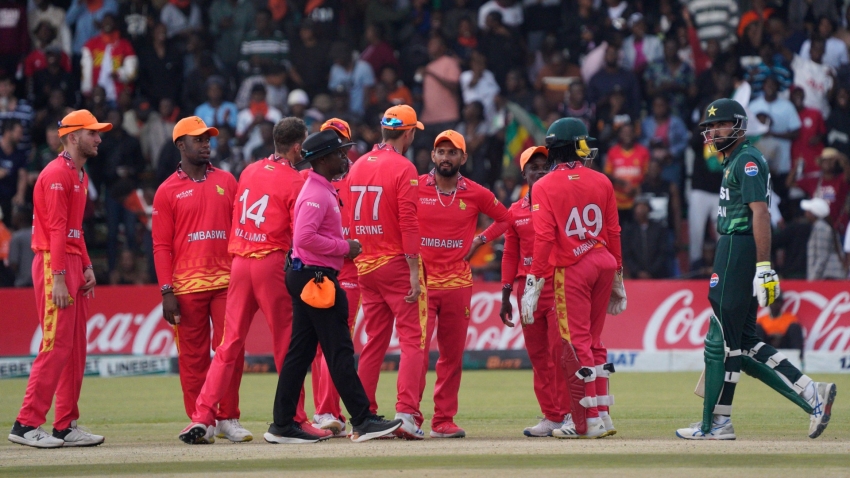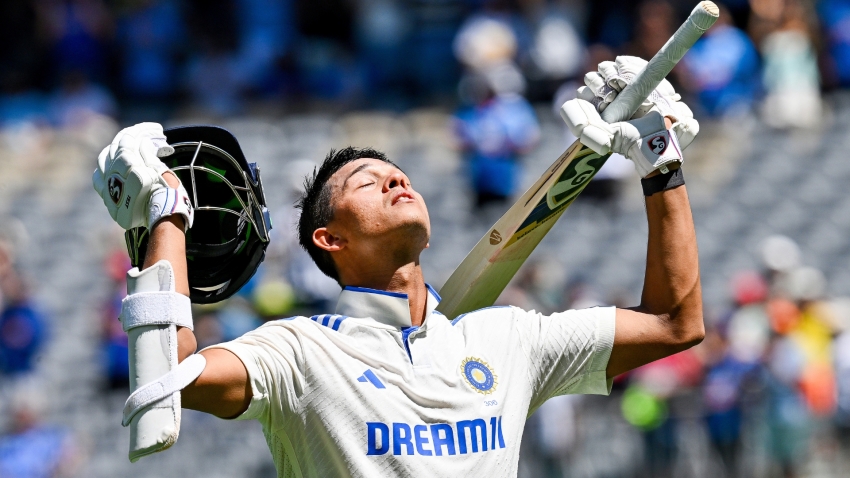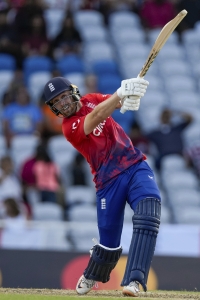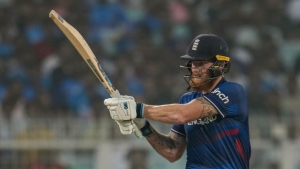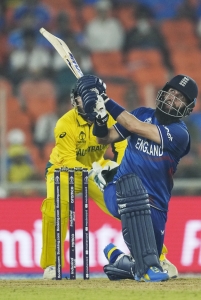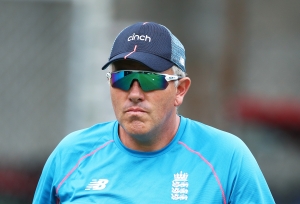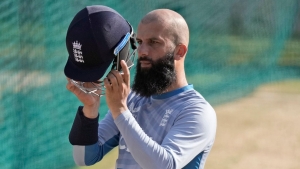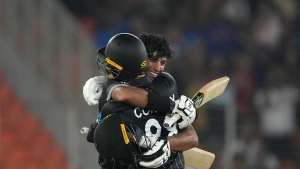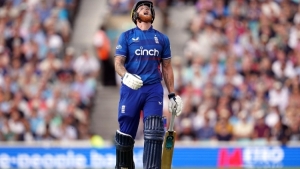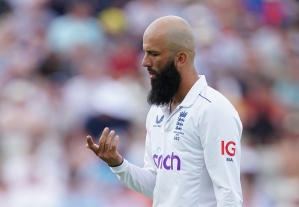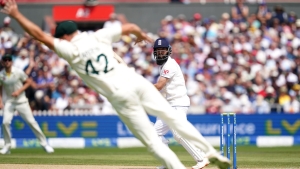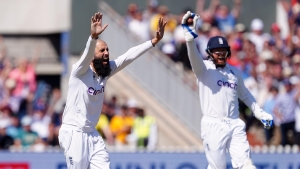England’s World Cup defence began with a punishing nine-wicket defeat in Ahmedabad as New Zealand helped themselves to a slice of revenge four years in the making.
Organisers scheduled a repeat of the 2019 final to kick off this year’s tournament, but rather than a nail-biter to match the tension of that Lord’s classic, they had to settle for a thoroughly one-sided affair.
England needed a super over and a boundary countback to get their hands on the trophy last time around, but two majestic hundreds from Devon Conway and Rachin Ravindra meant the Black Caps romped home in the rerun with almost 14 overs to spare.
Conway finished 152 not out while his Wellington team-mate Ravindra reeled off an unbeaten 123 – more than double his previous ODI best.
The absence of Ben Stokes with a hip injury robbed the reigning champions of some middle-order firepower but their score of 282 for nine was nowhere near enough to constrain an outstanding Kiwi chase.
Where England relied on a composed innings of 77 from Joe Root, who managed four boundaries and a six while a series of unforced errors unfolded around him, Conway and Ravindra cut loose under lights.
Empty seats in the 134,000-capacity Narendra Modi Stadium could be tallied in the tens of thousands but the fans who did show up witnessed a remarkable stand of 273.
The pair came together in the second over after Sam Curran strangled Will Young down leg for a golden duck and proceeded to pile on 30 fours and eight sixes in a major statement of intent.
England, meanwhile, were chaotic with the bat, lethargic with the ball and sloppy in the field.
Put in to bat first they relied on Root to spare the blushes of his mis-firing top-order team-mates.
Dawid Malan was first to go for a scratchy 14, caught behind flashing hard at the impressive Matt Henry.
Jonny Bairstow (33) enjoyed a smoother start – including a flicked six off Trent Boult from the second ball of the day – but he offered a tame catch off Mitchell Santner just as he looked to take control.
Harry Brook, deputising for Stokes, also burned brightly and briefly. He clattered two fours and a six off Ravindra as he dropped three successive deliveries short, then lifted the next one straight down Conway’s throat at deep midwicket.
When Moeen Ali lost his off stump hacking across the line at Glenn Phillips, England had slipped to 118 for four, but a stand of 70 between Root and Buttler (43) offered some stability.
Root had unleashed a trademark reverse ramp for six off Boult early in his stay, but for the most part he played conservatively rather than looking dominate. Measured against the rest of his side, it was a cut above. Measured against the opposition, it was not enough.
He departed in the 42nd over, nutmegging and yorking himself in one swift movement as he tried to reverse sweep Phillips.
Chris Woakes set the tone for a chastening reply, kicking off with a half-volley that Conway gratefully stroked through cover and shipping 10 from his opening over.
Young’s cheap exit raised English spirits, however briefly, when he grazed a leg-side loosener from Curran into Buttler’s gloves but that merely brought the match-winners together.
Ravindra, promoted to number three for the first time in his ODI career, made an early target of Woakes as the experienced seamer served up a sequence of gentle four balls.
When England sought to reclaim control through the blunt pace of Wood, it only made things worse.
Conway drove his first ball straight past him for four before Ravindra peeled off a pair of lovely strokes, a swivel pull that raced flat through the night sky for six and a perfectly-timed punch through point on top of the bounce.
Wood looked rattled as he continued to crank up his speeds only for the ball to disappear with regularity, Conway eagerly showing off his prowess against the quick stuff.
By the end of the 10-over powerplay the Kiwis had roared to 81 for one, a clear 30 past England’s score at the same stage.
Ravindra had Moeen in his sights now, clubbing him for six in each of his first two overs, and even the arrival of Adil Rashid’s leg-spin could not slow things down.
Stokes emerged from the dugout to deliver some words of encouragement at the first drinks break but, even at that stage, it seemed too late.
The required rate continued to come down as both men reached celebrated centuries, Conway first over the line but Ravindra one ball quicker in just 82.
The closing stages of the chase were a procession, with runs flowing at will and a weary England side barely able to contain them before the finishing touches came off the second ball of the 37th over.


